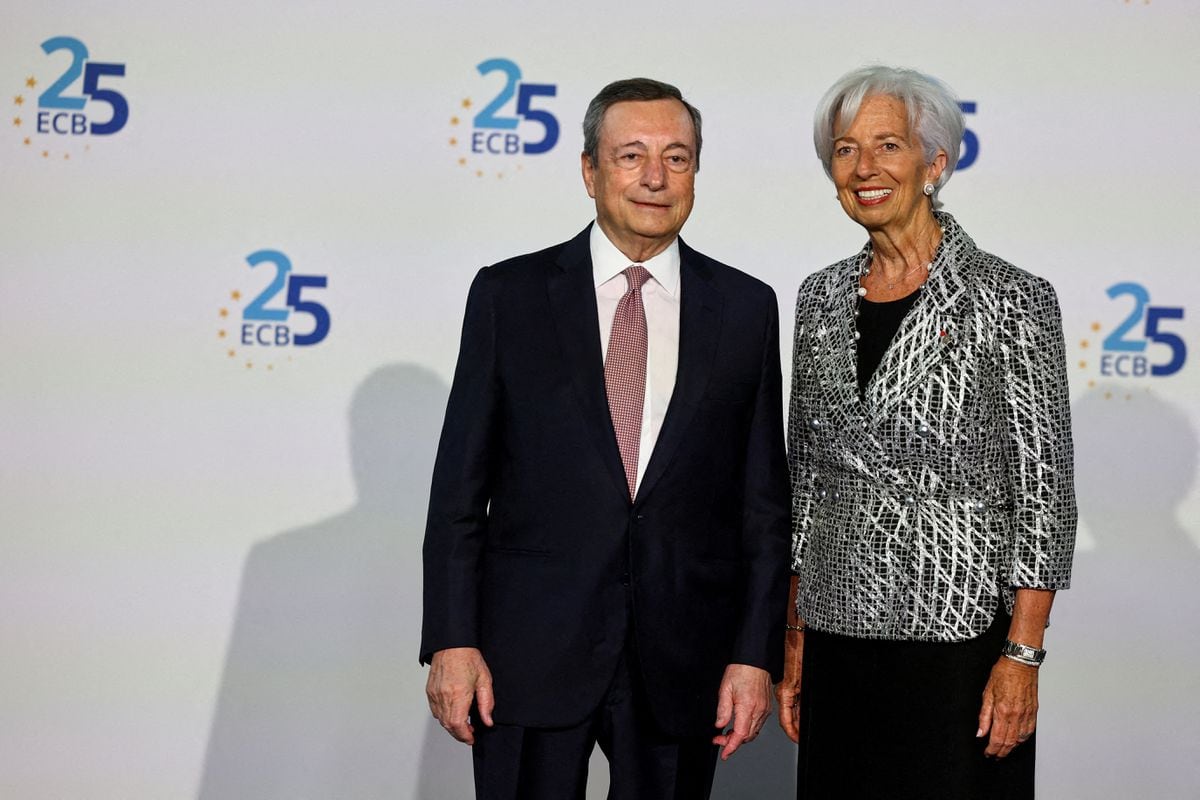In many parts of the world, strivings for independence are a source of conflict.
For the Uyghurs persecuted in China, they could be exactly the wrong path, warns an exiled author.
China's course against the Uyghur minority in the province of Xinjiang * is sometimes relentless and cruel - 40 states recently reprimanded "arbitrary detention" and "surveillance".
Parts of the group respond with demands for independence.
But that could be the wrong way to seek improvement, warns one Uyghur exile in this article.
This article is available for the first time in German - it was first published on July 27, 2021 by the magazine "Foreign Policy".
I am sitting in the winter sun in safe Australia, but even here - far from the terror of the Chinese Communist Party (CCP) *, to which I was exposed as a Uyghur in Xinjiang - I still find it difficult to talk about the genocide.
On the one hand, I gave up my home and sacrificed a promising career and am now only partially free. All of the people I know and love at home - my parents, friends, business associates, and professional mentors - are potential hostages of the CCP. The regime regularly arrests and terrorizes friends and family members of the critics who speak up abroad. Many in the Uighur diaspora have already been threatened by the secret service, whose influence extends overseas, or given false hopes of the release of imprisoned relatives if they remain silent. That is why so many of us are reluctant to speak up or feel compelled to use pseudonyms, as I am doing here.
But there is another reason - which is quite difficult to talk about.
The fact that the Uighur independence movement so dominates the genocide with its narrative does not do justice to the diversity and nuances of the political orientation within the Uyghur community.
Some activists are inadvertently doing the supposedly simple matter of convincing others that what is happening in China is real and catastrophic, a disservice.
China's “genocide” of Uyghurs: “Noticeable progress” - at least as perceived in the West
Certainly the Uyghur independence movement and its supporters among the Uyghurs have done a lot to bring the issue to the public at all. It is thanks to these organizations and the allies of the Uyghurs in science, politics and from the activist environment that the current genocide of the Uyghurs - despite all attempts by the CCP to deny it - swept under the carpet and muzzled critics - is discussed in the media and Western states express their concern. Just recently, during an online game, a teammate who happened to be on my team said to me: "It's really tough what is happening to your people". I didn't explain anything else, just said that I am a Uyghur.
That is noticeable progress! I was tired of having to elaborate on my origins when people asked curiously again why I - who clearly does not have the facial features of a Han Chinese - would say I came from China. And the independence of the Uyghurs is - contrary to the claims of the Chinese government - a legitimate concern.
But at the same time it is not necessarily what the majority of Uyghurs want. Of course, in a dictatorship it is always difficult to form an opinion. But before the persecution intensified and any expression of opinion the party disliked became dangerous, there was a time when the Uyghurs felt safe enough to discuss sensitive topics privately or anonymously on the Internet. The well-known Uyghur economics professor Ilham Tohti spoke out loudly against Uyghur independence, and not to prove loyalty to the regime. Tohti was sentenced to life imprisonment on flimsy grounds in 2014. I am both proud and ashamed to call him my friend: after his arrest, out of fear for myself, I stopped visiting his family in need. I told myselfthat it is sufficient as a gesture to send money through a mutual Han friend.
China: Uyghurs face fundamental question - is autonomy the right way?
Tohti advocated the idea of autonomy as enshrined in the current Chinese constitution.
His only criticism, which was shared by a number of Uighur intellectuals at the time: the autonomy was only inadequately implemented.
That has to change.
Together with a Weibo group of young Uyghurs, I resolutely opposed Tohti's vision.
I argued that in a multiethnic region like Xinjiang it was basically racist to allow only one group to have sole power.
I therefore considered the idea of an autonomous Uighur region, even if Tohti imagined it were implemented perfectly, to be a disaster.
Tohti and I fought a battle of words on Weibo.
Then he invited me to his home and we became friends.
We were seldom of the same opinion, neither online nor offline, but what we both could not overlook was the distrust of many Uyghurs towards the idea of Uighur independence and any connection to political Islam.
The history of Xinjiang is complicated and cannot be reduced to the question of "who came first".
Secularism also has a long tradition among the Uyghurs.
East Turkestan, as Xinjiang is preferred by the independence movement, is hardly known as a term to the broader population in their own country.
The sight of the blue flag fluttering in the wind with a crescent moon and a pointed star, once the national flag of the Uighur state, which was very short-lived in 1933/34, does not arouse any special feelings in many people, including myself.
Because it played no role in the identity that we have developed as proud Uyghurs.
Uyghurs: Once close to secular Turkish nationalism - today in some cases close to Islamism
The independence movement was once much closer to secular Turkish * nationalism. Today, however, parts have moved closer to Islamist groups. And because of the Islamic Movement of East Turkestan (ETIM), a short-lived terrorist group about which the Chinese authorities are making more fuss than necessary,
dong tu is being made
, the Chinese abbreviation for East Turkestan, used solely as the name of this organization and not as a geographical term. (In October 2020, the United States lifted the ETIM's classification as a terrorist organization on the grounds that there was no credible evidence "that the ETIM continues to exist.") Islam's persecution of established religions by the Chinese government Incidentally, driven further into the camp of resistance against the regime - this applies even to relatively secular Uyghurs.
The CCP takes advantage of the independence movement dominating the narrative.
For decades, the Chinese public has been trained to see “separatists”, whether in Xinjiang or Taiwan, as traitors and to regard the integrity of the country's present-day borders as a core element of national identity.
This has repeatedly frustrated many Uyghur citizens and intellectuals in their homeland.
Racial discrimination, arbitrary arrests and escalating genocide are to be rejected outright.
But the desire of a sovereign nation to protect its territorial integrity needs to be looked at in a more nuanced manner.
Uyghurs in China: “Sympathies” of the “Ordinary Chinese” Way out of the misery of the minority?
The right to self-determination is anchored in the Charter of the United Nations. However, the question of what exactly this right entails has sparked debates and conflicts all over the world. The CCP portrays the brutal treatment of the Uyghurs as necessary in view of the alleged threat of terrorism and separatism (flanked by shameless, blatant lies and absolute control over domestic political reporting). In this way, she has succeeded in drawing - often objectively inadmissible - parallels with Russia, Turkey, Canada and Spain and their struggle against domestic independence movements. In fact, the violent, ethnically motivated policies of the CCP can best be placed on a par with Hitler and Stalin.
Xi Jinping's * China is no longer out to impress other countries with glittering Olympic stadiums. The country * led by wolf warriors appears to the outside world much more self-confident than before. Without hesitation, it still trumps Trump on Twitter and uses vaccines as bargaining chips. But it is also an increasingly ethno-nationalist country, paranoid about any hint of criticism.
It is difficult for ordinary, non-Uighur Chinese to escape the dominance of this narrative. In order to gain their sympathy, it might therefore make sense to portray the Uyghurs as unjustly persecuted Chinese citizens - as victims of political circumstances like other ethnic groups were already during the Great Leap Forward or the Cultural Revolution - rather than as a people who fights for his freedom.
That is not to say that Uighur independence is not a legitimate concern.
But it's not something worth fighting for in the midst of this crisis.
Unfortunately, at the moment, any embassy as soon as it is associated with the blue flag and the term "East Turkestan" is considered illegitimate.
Even by the most decent and compassionate people who might otherwise be deeply appalled by what is happening in their beautiful country.
from Yehan
Yehan
is the pseudonym of an exiled Uighur author.
This article was first published in English on July 27, 2021 in the magazine “ForeignPolicy.com” - as part of a cooperation, a translation is now also available to readers of the IPPEN.MEDIA portals. This article will also appear in the print edition of “Foreign Policy” in summer 2021.
+
Foreign Policy Logo
© ForeignPolicy.com
* Merkur.de is an offer from IPPEN.MEDIA.




/cloudfront-eu-central-1.images.arcpublishing.com/prisa/YFOE7FF5EFC7NP5O2DLUMEU6EI.jpg)



/cloudfront-eu-central-1.images.arcpublishing.com/prisa/VFQFJYOVGFFAJOTNW2NNJRUS3I.jpg)
